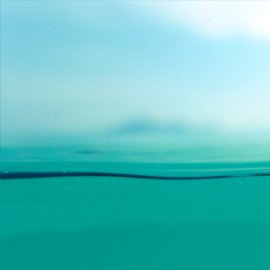Earth Overshoot Day 2022
-
English
-
ListenPause
[intro music] Welcome to World Ocean Radio… I’m Peter Neill, Director of the World Ocean Observatory. The earth is bountiful, the ocean infinite, there for our use and sustenance – a sentiment, not a fact, that has under-laid human behavior for all time, from our most primitive beginnings to our consumption-driven present, always there and fulsome. Not so of course, a sentiment now revealed as false and delusional as we reach the capacity of both earth and ocean to support our life of excess, living beyond our means. To measure this, Earth Overshoot Day was established to calculate the total production value of earth and ocean systems and to compare against total consumption value of global human behavior. Earth Overshoot Day, then, marks the date when humanity consumes from Nature more than the planet can provide, either as natural or renewable resources in a year. On what day do we pass over the line from responsible use of earth’s assets to an irresponsible subtraction, living on borrowed resources from the ensuing days, ensuing years, indeed ensuing generations? For 2022, the date is July 28, meaning that from today, and all days after, we will be living in debt, in debt for our needs next week and the rest of the year, value subtracted from earth’s total resource capacity. That’s one day earlier than last year, and five months earlier than 1970, the time this calculation was first created. There is no solace in these statistics. We are showing no discipline in our expenditure of natural resources, and the situation can only worsen as population continues to grow, behaviors are left unchanged, and the total availability in Nature’s “bank” is evermore de-limited by poisoned inventory of land, crops, food sources, and fresh water. Every year we are spending our future at an increased rate, surely to run out of capacity and time. Our security is threatened, our supplies already rationed, species already consumed to extinction, and no overt, effective plan in place to confront what some call catastrophe or collapse. It is more than a sobering fact, this overshoot day, more than a statistical alert that we are living so far beyond Nature’s means that we are consciously pursuing destruction; it is a stark warning. Pessimists abound: pay no attention, take what you can, nothing you can do about it, ignore the implications for even tomorrow as long as we’ve got what we need, or don’t need, today. That is a nihilistic perspective that does not see very far, does not involve anyone else, friends or family or others, and does not care a whit about the future. I am an optimist – an applied optimist – and it is important to make the distinction. Optimism is a perspective, an attitude; applied optimism is an action, an action taken every day that confronts decline and advocates for necessary change, especially in the context of survival. Applied optimism is change at home, in the workplace, in leisure activity, in community engagement, and in social and political expression. It only works when there is leadership, participation, and continuity of action – it works best in a democracy, as long as there is a commitment to vote, and to extend that vote and its purpose through involvement at every level of life and community. You would think that this threat to our global food supply would matter. You would think that we could address poverty and hunger worldwide. You would think we would believe in the scientific evidence on which to understand problems and base constructive response. You would think that we would understand the foolishness of waste, or the essential requirement for available clean water, or the need to welcome alternative, more effective and economical technologies by which to provide basic goods and services, or the value of education and communication by which to inform the public that we are at risk and that we have the ways and means to succeed. The earth and ocean are our allies here, not our enemies, not lifeless entities that are to be used until they are no more. The sad truth is that they will outlast us all as we abandon our respect for their limits, for the immutable laws of supply and demand, and for sustenance and community beyond today. If you look at the national ledger of the United States, we have again increased our debt to astronomical numbers - a measurement of a society that, for all its wonder and achievement, has failed as a responsible financial, political, social system by expending, not sustaining or increasing its asset base. In that expression of hubris and selfishness, we overshoot—now, and every day, one day less, year after year, until there is no more? . We will discuss these issues, and more, in future editions of World Ocean Radio. [outro music]
Earth Overshoot Day marks the date when humanity consumes from Nature more than the planet can provide, either as natural or renewable resources in a year. In 2022, Earth Overshoot Day falls on July 28th, showing the start reality that we are living far beyond Nature's means to sustain our growing demands.
Do you prefer the written word? Head on over to Medium.com/@TheW2O.
About World Ocean Radio
World Ocean Radio is a weekly series of five-minute audio essays available for syndicated use at no cost by college and community radio stations worldwide. Peter Neill, Director of the World Ocean Observatory and host of World Ocean Radio, provides coverage of a broad spectrum of ocean issues from science and education to advocacy and exemplary projects.
Image Credit
Linus Nylund @dreamsoftheoceans on Unsplash
Resources from this Episode
Earth Overshoot Day: www.overshootday.org
Global Footprint Network: www.footprintnetwork.org
- Login to post comments



